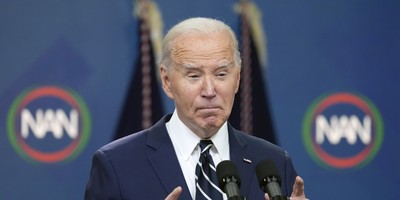Ashton phrased his request carefully, in what several summiteers called words "calibrated" to avoid offending China.
Ashton said "In all of our interactions with our Chinese counterparts, the United States consistently encourages China to take actions that uphold -- and do not undercut -- the shared principles that have served so many in Asia-Pacific so well."
He added. "China's actions in the South China Sea are isolating it, at a time when the entire region is coming together and networking...Unfortunately, if these actions continue, China could end up erecting a Great Wall of self-isolation."
Great Wall of self-isolation. Was that calibrated for mild irony? Perhaps, but it also painted an accurate strategic picture.
Chinese diplomats immediately denounced Carter's speech.
Expansion of Chinese power, particularly China's military power, and North Korean belligerency are the precipitate causes for the emerging Asian security network. In the late 1990s, Southeast Asian nations began reacting to Chinese territorial expansion in the South China Sea. Chinese maritime and island claims encroached on Vietnamese and Filipino territory. Hanoi and Manila faced a common security threat.
Beijing's audacious island manufacturing strategy in the South China Sea has provoked fierce Vietnamese and Filipino resistance. China creates artificial islands then says they are Chinese territory. The larger pseudo-islets now have air bases capable of handling jet fighter-bombers.
Recommended
Meanwhile, in northeast Asia: Sometime between 1998 and 2006 South Korea and Japan grew very tired of North Korean nuclear threats. Still, South Korea continued to pursue its "Sunshine Policy" and provide the north with assistance. North Korea's October 2006 nuclear test may have been the turning point. Japanese security officials began to openly discuss changing defense policies that restricted offensive action. South Korea reduced aid. In March 2010 North Korea sunk the South Korean Navy ship Cheonan. 46 sailors died, most of them young men. South Korean attitudes hardened.
Japan perceived early on that North Korea would eventually employ ballistic missiles. Japan decided in 1988 that its Kongo-class destroyers would have the U.S.-made Aegis radar system. Vessels with Aegis can be configured to carry anti-missile missiles.
Japanese Aegis-capable ships can integrate their anti-missile defense capabilities with the US Navy-- an example of current security cooperation. The U.S. may soon deploy its Terminal High Altitude Area Defense missile defense system in South Korea, at South Korea's request. The U.S. has a THAAD battery deployed on Guam.
Beijing's bullies have targeted Japan. China claims several small islets in the East China Sea that are currently under Japanese control. In November 2013, China tested Japanese and US reactions when it unilaterally extended its Air Defense Identification Zone. The new ADIZ overlapped Japan's ADIZ and extended over disputed territory.
Aggressive? Yes. And Beijing, for the most part, got away with it.
China's neighbors are now pushing back. Vietnam is the illustrative case. In a bilateral confrontation with China, Vietnam is vulnerable. China is too powerful, militarily and economically. So Vietnam sought a security relationship with its old enemy, the US. US power balances that of China. In May 2016 Washington decided to permit sales of U.S. weaponry to Vietnam. Everyone knew it the decision was coming, but it served as a diplomatic marker that opposition to Chinese imperial expansion in Asia is stiffening.

























Join the conversation as a VIP Member